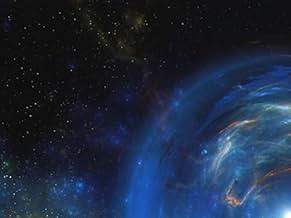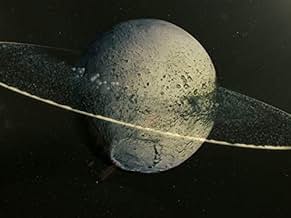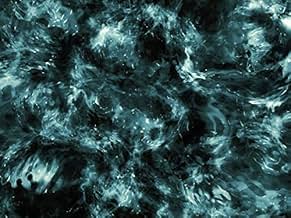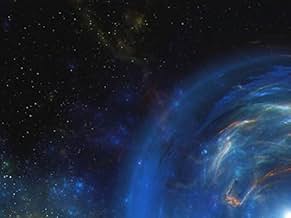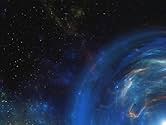PUNTUACIÓN EN IMDb
8,9/10
7,6 mil
TU PUNTUACIÓN
Añade un argumento en tu idiomaA users guide to the cosmos from the big bang to galaxies, stars, planets and moons. Where did it all come from and how does it all fit together. A primer for anyone who has ever looked up a... Leer todoA users guide to the cosmos from the big bang to galaxies, stars, planets and moons. Where did it all come from and how does it all fit together. A primer for anyone who has ever looked up at the night sky and wondered.A users guide to the cosmos from the big bang to galaxies, stars, planets and moons. Where did it all come from and how does it all fit together. A primer for anyone who has ever looked up at the night sky and wondered.
Explorar episodios
Reseñas destacadas
10nate1202
One of my favorite shows. Great content. Great explanations of multiple concepts.
Excellent job! Keep it up!
Excellent job! Keep it up!
10GLanoue
A great series. I think I've seen all the science documentaries, and this is the best. Why? Not only do they take some of the better known scientific faces to present the material, they add a host of lesser known but engaging scientists who are great at explaining without undue simplification. Like other dimensions of The Culture that seem to emphasize glamour and show, the producers have found scientists that look good or look simpatico, like you could imagine yourself having a conversation with them. This, however, is not at the expense of the content. The theories are not only current, some are really quite subtle and difficult to present with mathematics, yet they manage, and without too many analogies and metaphors. You don't need a science background here, but it certainly helps. Although they have a musical sound track, it's rather muted and avoids the military/Wagnerian Birth of the Gods melodrama that just dummies down with the scientists say (In one telling interview I think at UCal, Alex Filippenko acknowledged that in other documentaries he doesn't have all the control he wanted on what came across; here, he seems more true to his scientific roots). Plus, the producers and directors try to avoid the standard self-congratulatory narrative trope that always diminishes (for me) similar documentaries: "In 1993 Nasa decided to solve this mystery and launched
. Nasa scientists eagerly waited for the results." Cut to shot of excited scientists huddling around consoles. Same scientists, twenty years later: "We couldn't believe it. It was the greatest moment of my life". Yes, science does involve egos, but it's not about egos, which (I presume) non-scientific producers seem too eager to use as a framing device. They get that the universe is much more dramatic than anything we could conjure up in a studio. True, they also use the Life on Other Planets narrative device, but usually to debunk it. Unlike other recent space documentaries that seem to play to the Trekkie desire to find thousands of alien races on each planet (put a goatee on Spock: instant alternate universe), here, the possibility of alien life is usually quickly debunked as highly improbable. In fact, what seems to be behind this series is the notion that Earth is a one-of. Things are cut hopping by brief framing shots and quick cut- aways. The graphics are great and plausible And, for at least one series, Mike Rowe narrates. Not to take away from the other narrators, who keep things interesting, a filmic structure that depends on narration needs Mike Rowe, whose offhand delivery underlines the stupendous wonders that are presented.
Yes, 10/10 "How the Universe Works" is, in my opinion, simply the best astrophysics documentary in over 30 years (astro-documentary viewers will probably know what landmark series aired at that time). If you like science, gaze at the stars or have any curiosity about anything beyond your own sphere of day-to-day activity THIS SERIES WILL NOT DISSAPPOINT. For me, this is the real deal, and what many of us have been missing since Sagan's death.
The series started out as a small unknown for many, without the intense fanfare given to many similar series like Tyson's "Cosmos: A Spacetime Odyssey". But this series is quite the quiet achiever. I LEARN something every episode. Interviews with leading experts like Michio Kaku and Andrea Ghez are HIGHEST QUALITY.
The season one original musical score from Richard Blair-Oliphant is INSANELY GOOD for material not otherwise sold on a CD label (but right now you can still get it on Last.FM). The visual effects are well done. Commentary is well researched. But a balance is still maintained of keeping this show informative yet hugely entertaining. I often watch a re-run before sleeping. I just love it.
The series started out as a small unknown for many, without the intense fanfare given to many similar series like Tyson's "Cosmos: A Spacetime Odyssey". But this series is quite the quiet achiever. I LEARN something every episode. Interviews with leading experts like Michio Kaku and Andrea Ghez are HIGHEST QUALITY.
The season one original musical score from Richard Blair-Oliphant is INSANELY GOOD for material not otherwise sold on a CD label (but right now you can still get it on Last.FM). The visual effects are well done. Commentary is well researched. But a balance is still maintained of keeping this show informative yet hugely entertaining. I often watch a re-run before sleeping. I just love it.
Simply said, this is the best astronomical documentary that I've seen since Carl Sagan's "Cosmos". And believe me, that is saying a lot considering that I own every astronomy/Cosmos documentary I can find on DVD and/or Blu-ray, including all six seasons of "The Universe" which was my favorite (excluding "The Cosmos") until I saw this. If you are in to watching these type of documentaries and haven't seen this, then I can only say, you are missing at least a year worth of education. The only negative thing I have to say is that season two already isn't as good due to Mike Row not being the Narrator, but that is purely my own opinion and does not reflect the quality or quantity of information given in this season.
10mahinpc
I will easily recommend this to anyone to gain the must needed knowledge about our world , universe and how its all created.
Big thank you to the makers of this series , love u guys
¿Sabías que...?
- CuriosidadesMike Rowe is the narrator of Season 1. Erik Dellums voiced Season 2 when it moved to the Science Channel. Rowe was asked to record Season 3 and then re-record Season 2.
- ConexionesFeatured in DWDD University (2012)
Selecciones populares
Inicia sesión para calificar y añadir a tu lista para recibir recomendaciones personalizadas
- How many seasons does How the Universe Works have?Con tecnología de Alexa
Detalles
Contribuir a esta página
Sugerir un cambio o añadir el contenido que falta


